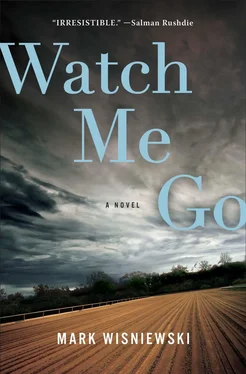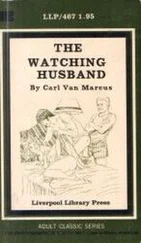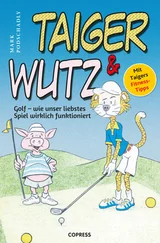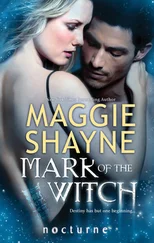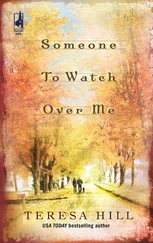I actually believed that then. I believed New York State would be only a place to visit. Somewhere in Kentucky, though, my mother began talking bluntly. And telling me things as though I were a normal adult rather than the daughter of a sex-deprived widow enamored of preachers. Things like how my father had gotten tangled up in those sun-bleached weeds in the middle of the day — not long at all after he’d sipped wine to relax himself to sleep.Things like how for a month or so just before he drowned, he tried to sleep as much as he could, to fight the impatience he felt while fishing, a pastime he’d adopted because owners weren’t letting him ride mounts on account of his recent failures to win.
Things like how these failures to win were thanks to a spill he’d taken on the homestretch just before the finish line, a spill that caused a yelp from him to reach the grandstand when his left hand was trampled, so that now the bones inside were just tiny pieces floating in an ugly swollen-up mush; like how his last day was a Tuesday covered by clouds shaped like toadfrogs, and how Tom Corcoran was the last person to see my father alive.
Tom Corcoran — or so my mother said on that bus ride — had jocked more than his share of horses that lost, and back then he was past the middle of his career and putting on weight, so he’d jog twelve miles every Tuesday, the dark day at the Finger Lakes track. And on my father’s last morning, Tom woke and put on his sweats and looked out his bedroom window toward the lake and saw my father sitting near the shoreline, leaning against a young crab apple tree. Resting against the other side of that tree was a bottle of port wine, which Tom thought odd, since my father had always told apprentices never to drink before sunset. Tom then headed down to that shoreline to say hello, but as it turned out didn’t say boo because my father was fast asleep, with one-hundred-pound-test black nylon fish line not only cast out into the lake but also wrapped around his ankle.
And see, Tom knew why that ankle was wrapped with that fish line: My father had already tried tying cast fish line to the trunk of the crab apple tree — so as to leave a baited hook out in the lake overnight — only to return the following morning to find the line snapped by what had to have been a huge muskie.
Tom considered tapping my father’s shoulder, to wake him and ask if he wanted to study the Form ’s freshest charts, but he didn’t touch my father at all, because my father hadn’t done a single thing right at the track since that cavalry charge of hoofs had mangled his hand.
But all these details about my father’s death, as well as any lessons they held about the effects of drinking, were not , my mother told me, as important as my future, and my future, she promised, would not require that I live in upstate New York forever. I’d need to stay there merely as long as it took to get our feet on the ground moneywise, which the Corcorans, who my mother had kept in touch with on and off, had been generous enough to offer to help us do. And let me just say something that I think every public defender should mention to just about any jury: If you ever wonder why people do twisted things, just remember that, more often than not, it comes down to someone losing or needing or otherwise wanting money.
Anyway wouldn’t you know that, right then, my mother added her “little” kicker detail about the Corcorans. About the fact that they had a son named Tug, who’d recently turned twenty-two just like me, and who now managed a horse farm on their acreage while he saved for college tuition.
A spoiled smarty-pants, I thought, but to be polite given all those stuck-on-a-bus miles ahead of us, I took enough interest to ask, “This farm is for racehorses?”
“Can’t say I know for sure,” she said. “When it comes to racehorses, Tom Corcoran tends to hold his cards pretty close to his vest.”
BARK SLAMS THE TAILGATE CLOSED,works his toolbox and scrap wood to make sure the drum won’t move. No way are we taking it to the dumps we sometimes hit, even the unguarded one that isn’t supposed to be a dump. The woman has her back to us, facing the creek. I’ll never see her again, but I need to. Finally she walks toward the crawl-space hole, hooks its screen window back onto it, and heads into the house. While she’s inside, James flicks a horsefly off his neck. She returns and walks toward us with her lips pursed. She’s even finer-looking with sunshine on her face. She gives Bark a handful of cash folded in half. He counts it, mostly twenties, then nods, slips it into his shirt pocket, and says, “Anything else?”
“Nope,” she says.
“Any ideas about where we should take it?” he says.
“That’s your business,” she says. “Anyone asks me, I never seen that drum in my life.”
“Right,” Bark says, and the way he gets in his truck — without a handshake or a good-bye or even a nod — tells me he wishes we could just roll the drum back down the lawn and give back the cash. But he starts the engine, lets it eat gas while James and I get in beside him, me in the middle. After we back up and ease out onto the road, I notice the woman’s gone — inside her house, I guess. And we’re not backtracking to return to the Bronx. Instead we’re headed north. Farther upstate. Two miles an hour under the speed limit, none of us making a sound. The radio’s off.
I think to ask Bark where we’re going, but it’s like the three of us have made a side deal not to talk. And if anyone’s going to break that deal, I’m guessing, it’ll be James, but James doesn’t say jack, and neither do Bark and I the whole time we cruise over tar-striped highways zigzagging us toward tree-covered hills. I imagine it’ll take hours to reach those trees, and maybe it does, but maybe it doesn’t because my gazing at them helps me remember Madalynn, this tall, willowy woman from my past and Bark’s, that one and only woman I ever had it bad for, and when we’re finally alongside the shadows of those trees, I’m all worked up about lovemaking with her. Behind us in Bark’s truck bed is, as far as I know, only one shovel, and damn if I’ll be the one to use it. We pass a farmhouse, a line of crammed-together mailboxes, a boarded-up gas station where a rusted sign reminds us of when unleaded was $1.44. Bark is scanning the bushy fields on either side of us, trying, I can tell by his grimace, to be more smart than scared.
We pass a state park with no one in the guard station. Then Bark is speeding down a straightaway. There’s no one around us, from what I can tell, but no place for the drum. Then Bark brakes and pulls over. There’s a hill to our right, but it’s a football field away. “How ’bout here?” he asks.
“Where?” James says.
“Yeah,” I say. “Where?”
“Right next to the road.”
“Are you high?” I say.
“Got any better ideas?” Bark says.
“Someplace more hidden,” I say, and for the first time ever, I wish New York was one of those middle-of-nowhere states. “With trees.”
“ You’re high,” Bark says. “The last thing we need is someone up here seeing three brothers walking out of some woods. They’ll follow the truck. They’ll read my license plate. We get out now — without any cars passing us — and roll it out quick and take off, there’s no way anyone can trace anything to us.”
“Then let’s do it,” James says. “Fast,” he says, and he’s out his door. And Bark is out his. And again I tell myself I’m with them anyway, so I might as well make sure I get paid. James can’t lower the tailgate so Bark slaps away his hand and lowers it himself, and they roll out the drum, and I do what I can to help, though all I manage is to get my fingers on the thing two seconds before they drop it on the weedy emergency lane. I roll it farther still from the road, over a small rise and into a shallow gulley. It gets stuck against a rock surrounded by mud, and that new yellow lid now feels slightly loose, but Bark and James are back in the truck — and behind me, on the highway, a car is coming. I think to run, then undo my fly as if I’m about to piss, using this as an excuse to turn my face as the car passes, honking its horn.
Читать дальше
